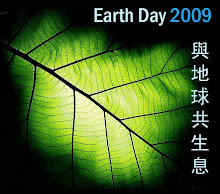Perhaps they feel they have no other choice but to take a more extreme stand. I understand part of this is political posturing, to capture the spotlight and boost the visibility of island nations and their views. For small states that traditionally have a limited voice in international affairs, the COP may be one of the few instances in which their concerns can be heard and actually taken into account. (Since they are, admittedly, sitting on the front lines).
However, in the weeks leading up to Copenhagen, the process seemed to be moving along with developed countries (EU, Japan, US), and large developing countries (like China, India, Brazil) seen as the key players. Perhaps then, these actions could also be interpreted as an attempt by small islands to overcome a feeling of helplessness, as other nations rolled through with their own agendas. Yet one somehow gets the sense that if island nations did not truly feel their way of life was threatened, there would be less inclination to take such a stand. There are easier ways to be heard.
Whatever the case, it’s having an effect. By pushing the envelope, small island nations have changed the bounds of what everyone is discussing at the conference, and subsequent proposals have reflected this.
-----
Video of the AOSIS press conference
Dessima Williams (Grenada/AOSIS)
http://www.youtube.com/watch?v=M2R3jIjewGk
http://www.youtube.com/user/

No comments:
Post a Comment